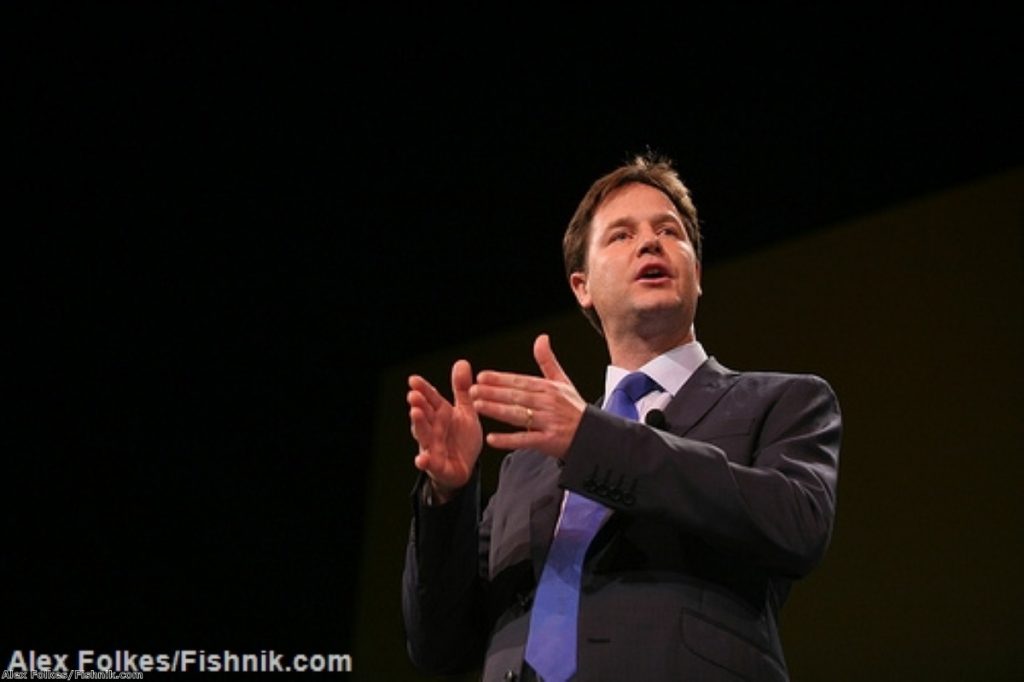Clegg: We’re losing war on drugs ‘on an industrial scale’
Nick Clegg has broken ranks with the prime minister on drugs reform, just five days after his coalition partner ruled out a royal commission on decriminalisation.
In a clear split at the top of the government, Clegg backed a home affairs committee report which called for a fundamental rethink of Britain's approach to the war on drugs.
"It's time we told the truth," Clegg told the Sun newspaper.
"We are losing the war on drugs on an industrial scale.


"In politics, as in life, you can't keep on doing something that doesn't work. You can't keep repeating the same mistakes."
The deputy prime minister's silence when the report was published on Monday was strange given his own party had voted to set up a panel investigating the case for legalising drugs. It is possible he faced pressure from his backbenchers in the ensuing five days.
"I don't see this as me against the prime minister," he told the BBC.
"It's about what we as country think is the right thing to do."
"There's nothing hard about turning your back on the evidence."
The news comes amid new polling which suggests the public is more sympathetic to drug reform that had previously been assumed.
A YouGov survey found 60% of Brits disagreed with the prime minister's refusal to call for a royal commission.
Support comes across party lines, with 59% of Conservative voters, 62% of Labour supporters and 75% of Lib Dems in favour.
There was also strong interest in the Portugese decriminalisation experiment. Forty per cent of the public said they would support it while 32% were opposed.
If asked to consider trials of the Portuguese approach in some British cities, 54% backed the idea while 27% opposed it.
Cameron is thought to be privately sympathetic to the case for drug reform but he can ill-afford to open up a new split in his party as he tries to manage the gay marriage row as well as tensions over the economy and the European Union.
Home secretary Theresa May is also thought to be implacably opposed to the idea of setting up a royal commission and insists current drug policy is working.
Analysts question her conclusions however. While drug use is falling, so is alcohol use, suggesting falling incomes or some other factor is limiting intoxification.
Cameron is aware of Clegg's views and the pair have sent Jeremy Browne, Home Office minister, to other countries to investigate their drug policies.
That trip will come as something of a déjà-vu for the home affairs committee, who travelled to several countries, including Portugal and Colombia, as part of their one-year report.
They concluded that Portugal's decriminalisation programme was now widely supported among all major parties despite being highly controversial when it was implemented a decade ago.









